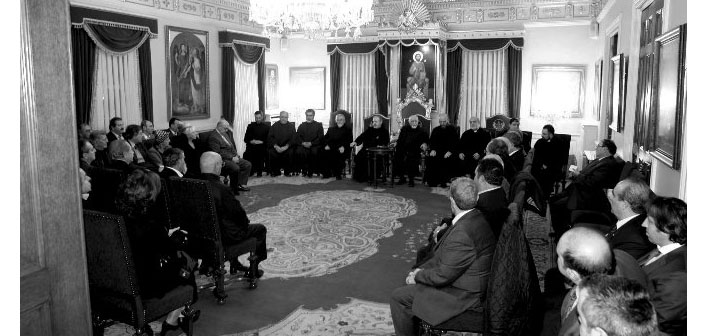
The Armenian Patriarch of Istanbul Mesrob II Mutafyan assumed his position as the Patriarch in 1998, but after he was stricken with Alzheimer’s disease in 2008, he slowly began to withdraw from public and became unable to serve his duty. Due his deteriorating health condition, in March, Mesrob II’s mother was appointed by a court order as his legal guardian.
When Mesrob II became so ill as to become unable to serve his duty, a dispute emerged amongst the Armenian community in Turkey about the election of a new patriarch or a co-patriarch. In the Armenian Patriarchate of Istanbul, which has history running back centuries, a Patriarch had either passed away while on duty or had abdicated, and because the present situation had never been encountered before,[1] the Armenian community could not definitively decide how to proceed exactly. In this process of deciding how to proceed, Archbishop Aram Ateshian was appointed in 2010 as the General Vicar (Acting Patriarch) as a sort of midway solution.
In time, a group of Armenians began to request the election of a new patriarch instead of the appointment of a General Vicar. This, combined with the opposition some Armenians have against Aram Ateshian has brought the dispute about the patriarch election to the forefront today. Ateshian’s writing of a letter addressed to the President of Turkey Recep Tayyip Erdoğan, in which he objected to the resolution passed by the German Federal Assembly characterizing the 1915 events as genocide, especially caused him to be subjected to a smear campaign spearheaded in Turkey by the Agos newspaper.[2] Furthermore, some sections of the Armenian community in Turkey and abroad accused him of being a traitor. Those carrying out the smear campaign against Ateshian went so far that, they had him barred from attending the ceremony that was conducted during Pope Francis of the Roman Catholic Church’s visit (which carried great importance for Armenians) to Armenia in June 2016.[3]
In a statement, Ateshian replied to the criticisms directed against him as follows:
… In my letter [addressed to President Erdoğan], I did not say ‘genocide happened’ or ‘genocide did not happen’. What I said was that third countries use us [Armenians] as leverage, that they bring up the Armenian issue for their own interests, and that they forget us when they have good relations with Turkey.[4]
Concerning those who called him a traitor, Ateshian gave the following response:
… Courage is not about shouting and making a lot of noise, but about preserving the rights that you have. As such, what I say is that those who allege that I am a traitor are in fact the traitors. If a set of rights were attained, if so much real estate was handed back, it was all achieved during my term [as the General Vicar]. …[5]
As a result of these kinds of disputes, in November, the Clerical General Assembly of the Armenian Patriarchate of Istanbul gathered to hold a meeting, retired Patriarch Mesrob II from his duty by giving him the title “Retired Patriarch”, and announced that an election will be held for a new patriarch. However, this move brought along with it new disputes and raised question marks. For example, can a patriarch, who is still alive but unable to perform his duties, actually be retired? Bishop Sahak Mashalyan, head of the Clerical Council of the Armenian Patriarchate of Istanbul and who presided over the Clerical General Assembly meeting, put forth the following argument concerning this question:
… We did not retire His-Highness the Patriarch, His-Highness was already legally retired eight years ago. We also did not declare the office [of the Patriarch] as being ‘empty’; for it was already empty since our Patriarch was not able to fill it for eight years. We did what was necessary in the face of these facts and decided for the holding of an election for a new patriarch.[6]
A matter of dispute that emerged after the announcement of the Clerical General Assembly was whether it is necessary or not to ask the state of Turkey for permission to hold a new patriarch election. For example, according to Ateshian, permission must first be gained from the State in order hold an election, and until such a permission is obtained, the Patriarchate will continue its functions under the helm of the General Vicar.[7] According to Mashalyan however, there is no need to obtain permission from the State, and that the only thing that needs to be done is to notify the State and obtain a date for the election.[8]
After the Clerical General Assembly’s decision regarding the holding of a patriarch election, four people’s names have come up for candidacy for the election:[9] General Vicar Archbishop Aram Ateshian, Bishop Sahak Mashalyan, Archbishop Karekin Bekchian (the spiritual leader of the Armenian community in Germany), and Archbishop Sebouh Chouljian (spiritual leader of the Gugark region of Armenia). All four of these candidates have Turkish citizenship, which is a prerequisite for being eligible to become the Armenian Patriarch of Istanbul.
When one takes notice of the smear campaign that had been carried out against Aram Ateshian, who had objected to the abuse of Turkish Armenians for the sake foreign states’ machinations regarding the 1915 events, it becomes difficult to evaluate the moves made towards the holding of a new patriarch election as being an unprejudiced endeavor. In our view, this possible election is not only about choosing a new patriarch, but also about eliminating Ateshian who is not liked by certain sections (who prefer dragging the dispute about the 1915 events into political machinations) due to his opinions that run counter to their opinions. How patriarch candidates are determined and how a patriarch is elected is naturally a subject the Patriarchate and the Armenian community decides upon. What is important is that, if a patriarch is to be elected, it would be best if the new patriarch is someone who stands clear of political machinations that seek to abuse the Armenian community and hurt Turkey, and someone who attaches importance to the improvement of Turkish-Armenian relations.
* Photo: Agos
[1] “Bu son müracat olacak, on kez başvuru yapacak değilim”, Agos, 4 Kasım 2016, p. 10.
[2] Gülsüm Gizem Özyol, “İstanbul Patrikhanesi Ermeni Sorununda Doğru Tespitlerde Bulunmuştur”, AVİM, http://avim.org.tr/tr/Yorum/ISTANBUL-PATRIKHANESI-ERMENI-SORUNUNDA-DOGRU-TESPITLERDE-BULUNMUSTUR
[3] Özyol, “İstanbul Patrikhanesi Ermeni Sorununda Doğru Tespitlerde Bulunmuştur”.
[4] “Almanya bildirisi gerginliği”, Agos, 4 Kasım 2016, p. 10.
[5] “Almanya bildirisi gerginliği”.
[6] Miran Manukyan, “‘Yapmamız gerekeni yaptık’”, Agos, http://www.agos.com.tr/tr/yazi/16952/yapmamiz-gerekeni-yaptik
[7] “Bu son müracat olacak, on kez başvuru yapacak değilim”
[8] Manukyan, “‘Yapmamız gerekeni yaptık’”
[9] “Candidates for Istanbul Armenian Patriarch Named”, Asbarez, http://asbarez.com/156622/candidates-for-istanbul-armenian-patriarch-named/
© 2009-2025 Center for Eurasian Studies (AVİM) All Rights Reserved
No comments yet.
-
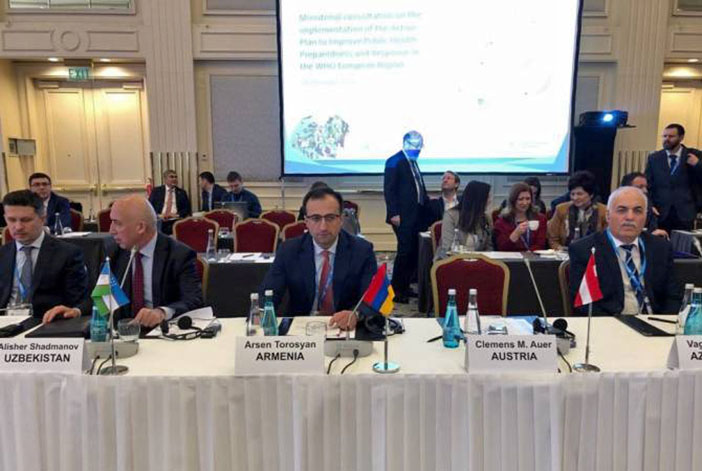 ATTEMPTS AT DIASPORIZING TURKISH ARMENIANS – III
ATTEMPTS AT DIASPORIZING TURKISH ARMENIANS – III
Mehmet Oğuzhan TULUN 07.05.2019 -
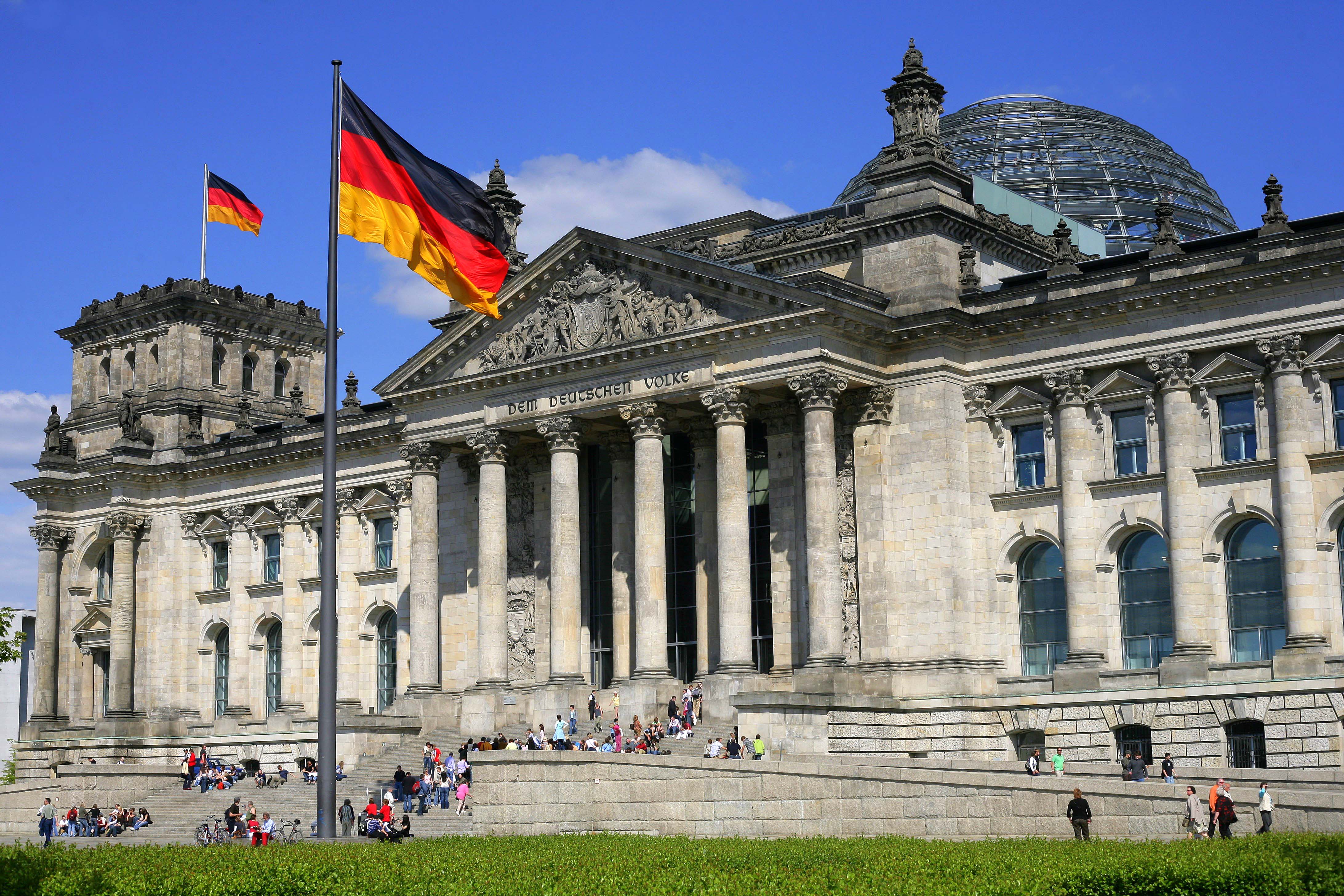 GENOCIDE ACCUSATION AS A FORM OF PUNISHMENT
GENOCIDE ACCUSATION AS A FORM OF PUNISHMENT
Mehmet Oğuzhan TULUN 31.05.2016 -
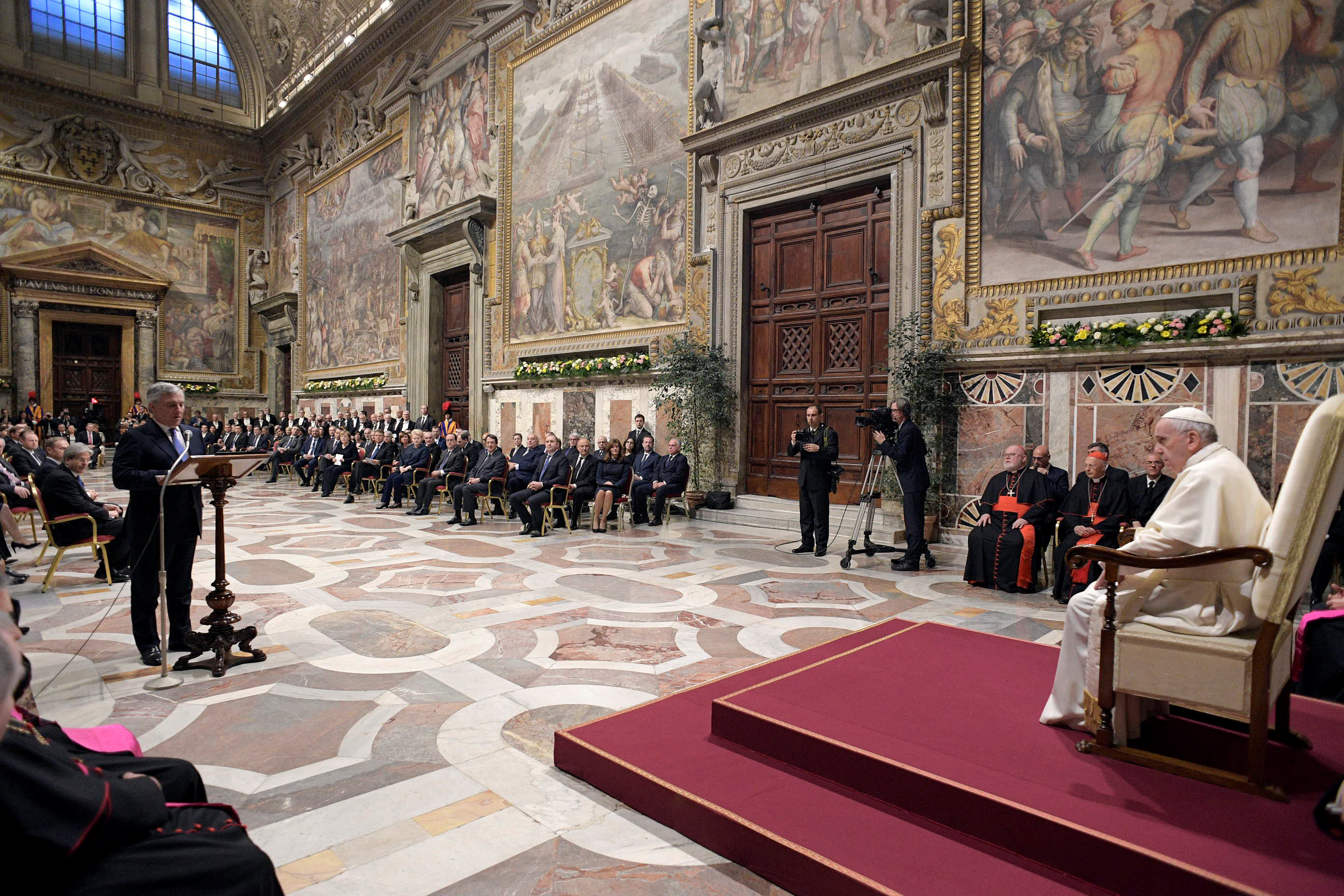 THE EUROPEAN UNION HAS COMPROMISED ITS FOUNDING PRINCIPLES DURING ITS 60TH ANNIVERSARY CELEBRATIONS
THE EUROPEAN UNION HAS COMPROMISED ITS FOUNDING PRINCIPLES DURING ITS 60TH ANNIVERSARY CELEBRATIONS
Mehmet Oğuzhan TULUN 06.04.2017 -
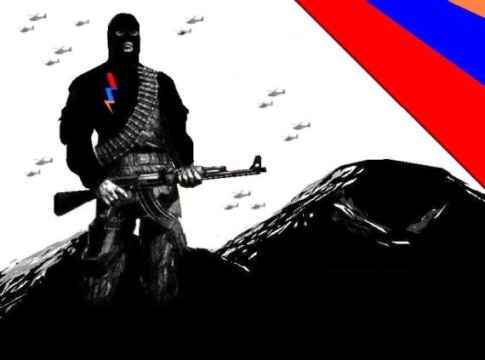 THE ARMENIAN DIASPORA AND THE VENERATION OF TERRORISTS
THE ARMENIAN DIASPORA AND THE VENERATION OF TERRORISTS
Mehmet Oğuzhan TULUN 23.01.2020 -
 TÜRKİYE’S SOUTH CAUCASUS POLICY AND THE WEST’S CONFLICTING APPROACH
TÜRKİYE’S SOUTH CAUCASUS POLICY AND THE WEST’S CONFLICTING APPROACH
Mehmet Oğuzhan TULUN 09.01.2025
-
FORTRESS EUROPE CLOSES RANKS
Alev KILIÇ 21.02.2013 -
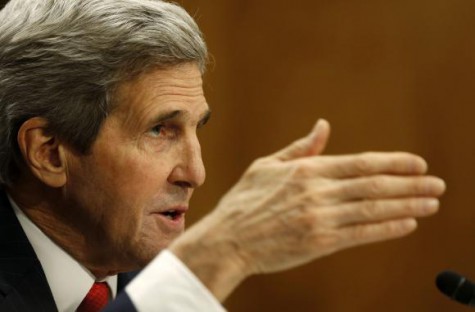 ISRAEL SAYS KERRY REMARKS ON IRAN NUCLEAR THRESHOLD 'NOT ACCEPTABLE'
ISRAEL SAYS KERRY REMARKS ON IRAN NUCLEAR THRESHOLD 'NOT ACCEPTABLE'
Hande Apakan 13.04.2014 -
THE CENTENNIAL OF THE BALKAN WARS
Alev KILIÇ 15.10.2012 -
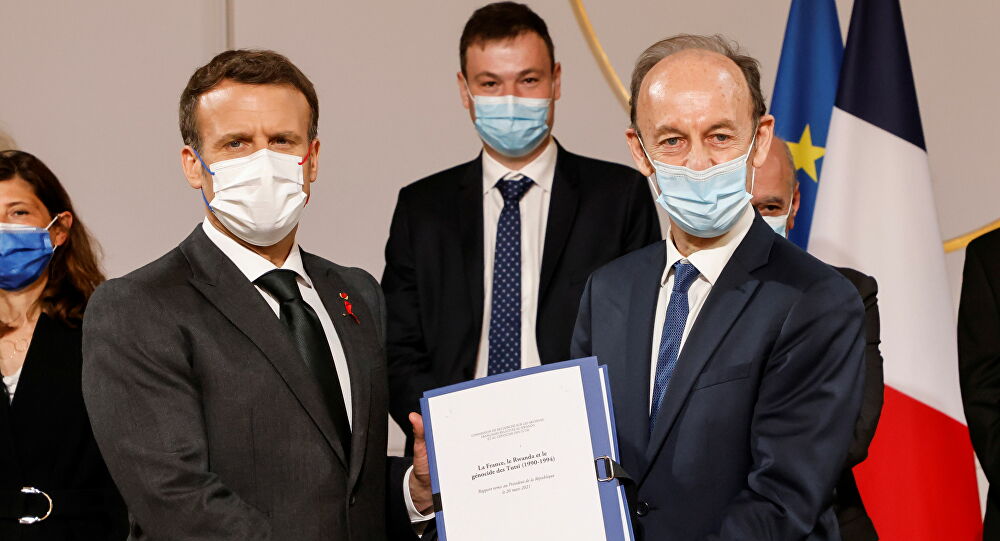 FRANCE HAS BEGUN TO SHED SOME FACTUAL LIGHT ON ITS ACTIONS IN RWANDA
FRANCE HAS BEGUN TO SHED SOME FACTUAL LIGHT ON ITS ACTIONS IN RWANDA
Ceyda ACİCBE 16.04.2021 -
 THE D-8 CAIRO SUMMIT
THE D-8 CAIRO SUMMIT
Seyda Nur OSMANLI 06.02.2025
-
25.01.2016
THE ARMENIAN QUESTION - BASIC KNOWLEDGE AND DOCUMENTATION -
12.06.2024
THE TRUTH WILL OUT -
27.03.2023
RADİKAL ERMENİ UNSURLARCA GERÇEKLEŞTİRİLEN MEZALİMLER VE VANDALİZM -
17.03.2023
PATRIOTISM PERVERTED -
23.02.2023
MEN ARE LIKE THAT -
03.02.2023
BAKÜ-TİFLİS-CEYHAN BORU HATTININ YAŞANAN TARİHİ -
16.12.2022
INTERNATIONAL SCHOLARS ON THE EVENTS OF 1915 -
07.12.2022
FAKE PHOTOS AND THE ARMENIAN PROPAGANDA -
07.12.2022
ERMENİ PROPAGANDASI VE SAHTE RESİMLER -
01.01.2022
A Letter From Japan - Strategically Mum: The Silence of the Armenians -
01.01.2022
Japonya'dan Bir Mektup - Stratejik Suskunluk: Ermenilerin Sessizliği -
03.06.2020
Anastas Mikoyan: Confessions of an Armenian Bolshevik -
08.04.2020
Sovyet Sonrası Ukrayna’da Devlet, Toplum ve Siyaset - Değişen Dinamikler, Dönüşen Kimlikler -
12.06.2018
Ermeni Sorunuyla İlgili İngiliz Belgeleri (1912-1923) - British Documents on Armenian Question (1912-1923) -
02.12.2016
Turkish-Russian Academics: A Historical Study on the Caucasus -
01.07.2016
Gürcistan'daki Müslüman Topluluklar: Azınlık Hakları, Kimlik, Siyaset -
10.03.2016
Armenian Diaspora: Diaspora, State and the Imagination of the Republic of Armenia -
24.01.2016
ERMENİ SORUNU - TEMEL BİLGİ VE BELGELER (2. BASKI)
-
AVİM Conference Hall 24.01.2023
CONFERENCE TITLED “HUNGARY’S PERSPECTIVES ON THE TURKIC WORLD"









